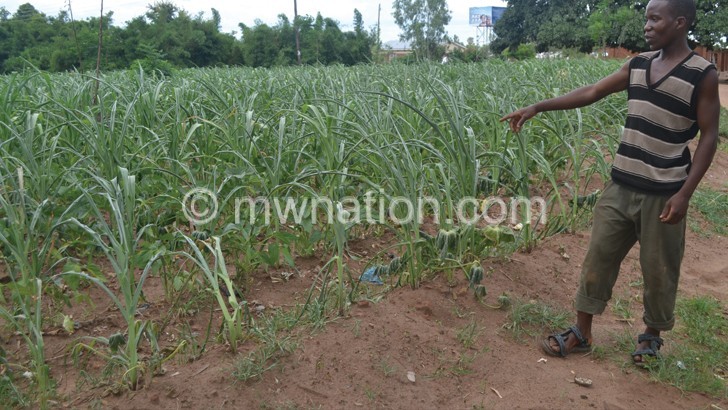Prospects show 10% crop production drop
As government says it expects high growth rate, Malawi is set to experience reduced crop harvest, a latest report on prospects for 2017/18 crop production has shown.
The report on Malawi’s food security outlook report indicates that production will drop by 10 percent below last season’s attainment or five percent less than the five-year average and national cereal requirements.

In its projections, the Famine Early Warning Systems Network (Fewsnet) says production of major cash crops such as tobacco, cotton and legumes will also likely register reductions.
The projections are coming at a time government is claiming Malawians are on course to have more money in their pockets as the country expects a six percent surge in economy.
Government further claims that the projected growth in gross domestic product (GDP) for 2018 is more than the six percent pace the World Bank says is needed to meaningfully reduce poverty.
According to Fewsnet, the 2017/18 harvest will be negatively impacted by pest attacks and large deficits in rainfall amounts and poor spatial distribution over time in Central and Southern regions that resulted in prolonged dry spells.
Further, Fewsnet says the fall armyworm (FAW) infestations reported in several parts of the country is expected to continue to be a threat to crops for the remainder of the cropping season.
“In December 2017, the government declared a FAW emergency after crop land ranging from 140 000 to 200 000 hectares in about 20 out of 28 districts was reported to be infested by fall armyworms,” reads part of the report.
According to statistics, last year the economy grew by around four percent at a time the country recorded higher maize output by chalking about 35 percent production gain.
Commenting on the practicability of the country achieving a six percent growth with reduced production, Chancellor College economics professor Ben Kalua said authorities need to be realistic with what they are saying.
“Commentators in Malawi and elsewhere are disputing the six percent economic growth prospects, it is not plausible… It is not just agriculture that will be affected but other sectors of the economy such as manufacturing, which has also been grossly affected by the energy performance. So the six percent is not realistic.
“We just need to be more realistic on the issues it’s better to be honest and confess that things are not going on, transparency is vital,” he said.
This week, the Reserve Bank of Malawi (RBM) also projected an inflation average of 10.5 percent in 2018, contrary to government’ s ambition of maintaining single digit inflation.
The RBM projection, outlined in its Sixth Monetary Policy titled Sustaining Low Inflation Amid Risks, is also in line with the International Monetary Fund (IMF)’s inflation outlook for the country.





